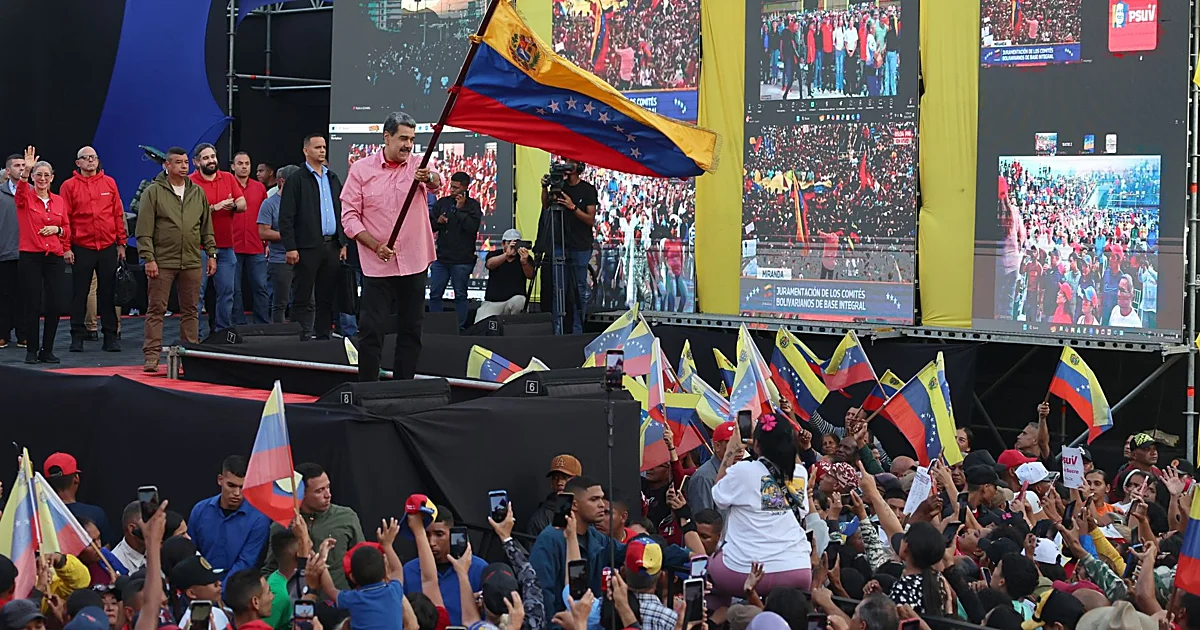
Two meetings this past week served to inform Donald Trump of the options he now has, at this decisive moment, regarding Venezuela. The president has held talks at his Mar-a-Lago estate in Florida to make a decision. The accumulated military pressure in the Caribbean, the diplomatic encirclement of Nicolás Maduro, and the unprecedented military deployment have converged at this point. It is now up to Trump to decide whether to transform this show of force, the entire mobilized machinery—aircraft carriers, fighter jets, intelligence agencies, and regional allies—into an order to act.
abc.es
Capture Maduro
The most aggressive option, according to sources familiar with these discussions, involves direct action against Maduro. Internal documents describe it as the fast track, though its risks are well known. It includes targeted attacks on Venezuelan territory, capture operations conducted by elite units, and the possibility of physically eliminating the Chavista leader or his inner circle. To this end, the U.S. has prepared a plan for the discreet deployment of a Delta Force detachment, a very small, secretive unit specializing in hostage rescue missions, counterterrorism, covert operations, and high-precision actions in hostile territory.
The legal argument is well-known: Maduro is accused of drug trafficking in federal courts and, according to Washington, leads a narco-state operating in alliance with Mexican and Colombian cartels. In this scenario, the U.S. would act in collective self-defense for the benefit of Colombia and Mexico, and would use the resources already deployed in the Caribbean to carry out punitive actions. It is the most drastic scenario, and also the most uncertain.
Precision Strikes
Below this is the option of limited attacks within Venezuela. These would be precision strikes against military infrastructure, drug depots, or state facilities that Washington considers part of the drug trafficking chain. There would be no ground invasion or prolonged presence, but rather limited, targeted incursions designed to further increase internal pressure on the regime.
The objective would be to erode the cohesion of Maduro's inner circle, provoke defections, and send a message of vulnerability without crossing the line into open warfare. This approach also includes covert CIA operations and special forces missions for specific actions, according to plans recently published by The New York Times.
Continue with the boats
The third option, according to these sources, is extreme pressure without ground attacks. This is the strategy Trump has used in these first few months: sinking boats, visible bomber patrols, maneuvers with regional allies, and increasing rewards for arrests. It is an option designed to intimidate, provoke tension within the internal structure of Chavismo, and maintain a sense of constant siege.
The White House is confident that a deployment of this magnitude – 15,000 military personnel, an operational aircraft carrier, F-35 fighter jets in Puerto Rico – could trigger fractures, discreet negotiations, or even a negotiated solution without the need to use force on Venezuelan territory.
Since September 2, there have been 21 attacks on boats suspected of drug trafficking in the Caribbean and the eastern Pacific, resulting in at least 80 deaths. The frequency increased from weekly to almost daily by the end of October, coinciding with the U.S. naval deployment in the area.
Negotiate
The least improbable option is a negotiated solution. It stems from a simple idea: facilitating the exile of Maduro and his entourage to a country willing to receive them—Turkey, Russia, Azerbaijan, and Cuba were all considered—as a way to avoid a larger conflict.
Sources within the National Security Council confirmed to ABC that intermediaries for the dictatorship offered to negotiate a possible change in the top leadership, as well as concessions they would be willing to make within the Venezuelan military. For now, both Trump and his top diplomat have refused to consider replacing current regime officials, such as the siblings Jorge and Delcy Rodríguez.
Democrats have insisted that they prefer negotiation, and have done so by attempting to pass resolutions prohibiting Trump from using force. They prefer to discuss dismantling the repressive system, stabilizing the economy with the help of the IMF and the World Bank, reorganizing the oil industry, and supporting a transitional government. It is the longest and most complex path, but also the one that would reduce the military cost to the US.
Excluding Democrats
But Trump is aware, as are his advisors, that Joe Biden's White House already negotiated with Maduro and offered him all kinds of concessions, such as the release of his front man or the resumption of oil licenses, only to see him perpetuate himself in power through electoral fraud, maintaining the continental drug trafficking structure.
Unlike in his first term, Trump has united his cabinet around this pressure campaign and has decided not to involve the opposition. According to a source familiar with the deliberations, he hopes this will allow him and the Republicans to claim credit for ending the dictatorship in Venezuela.

